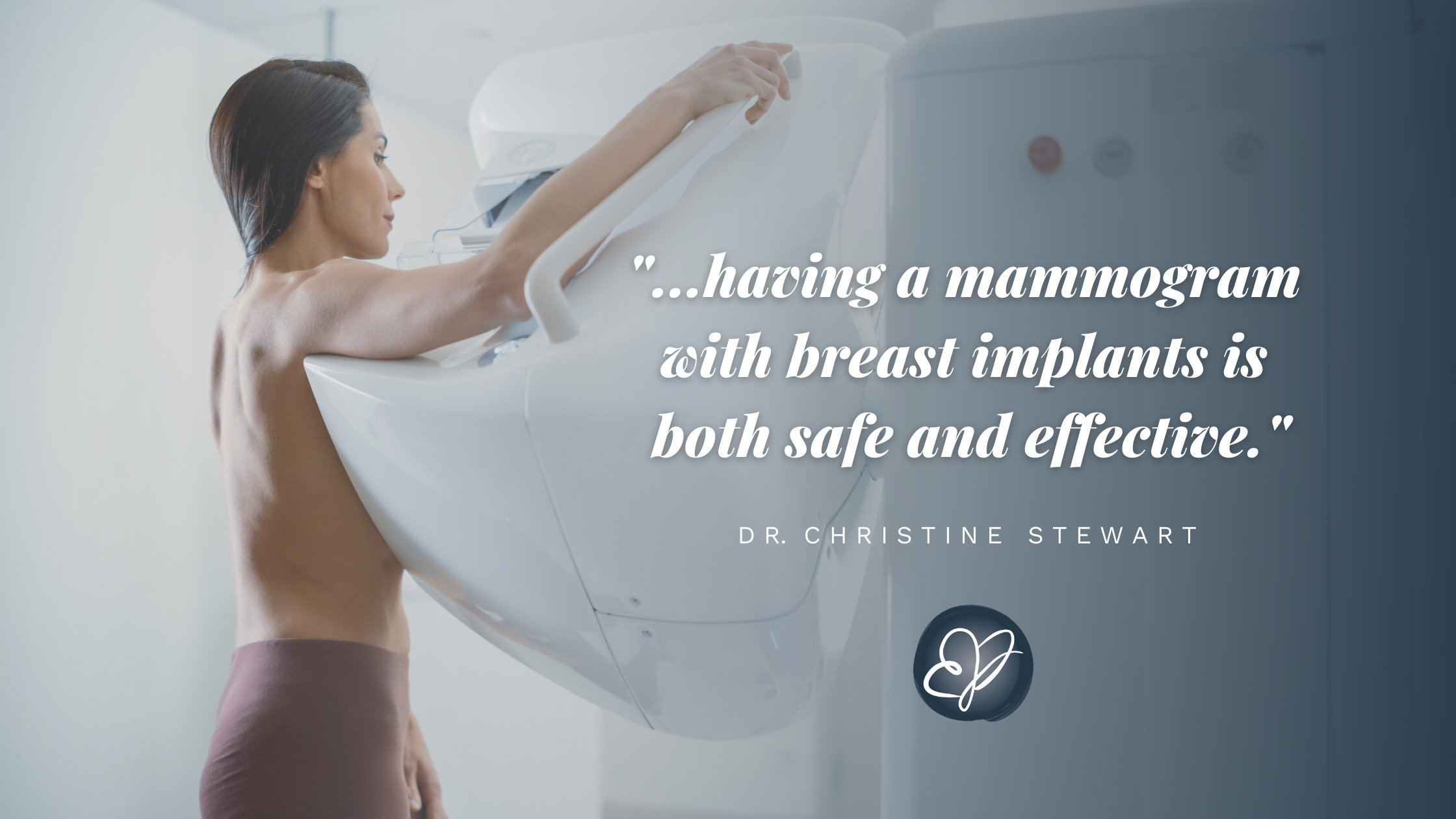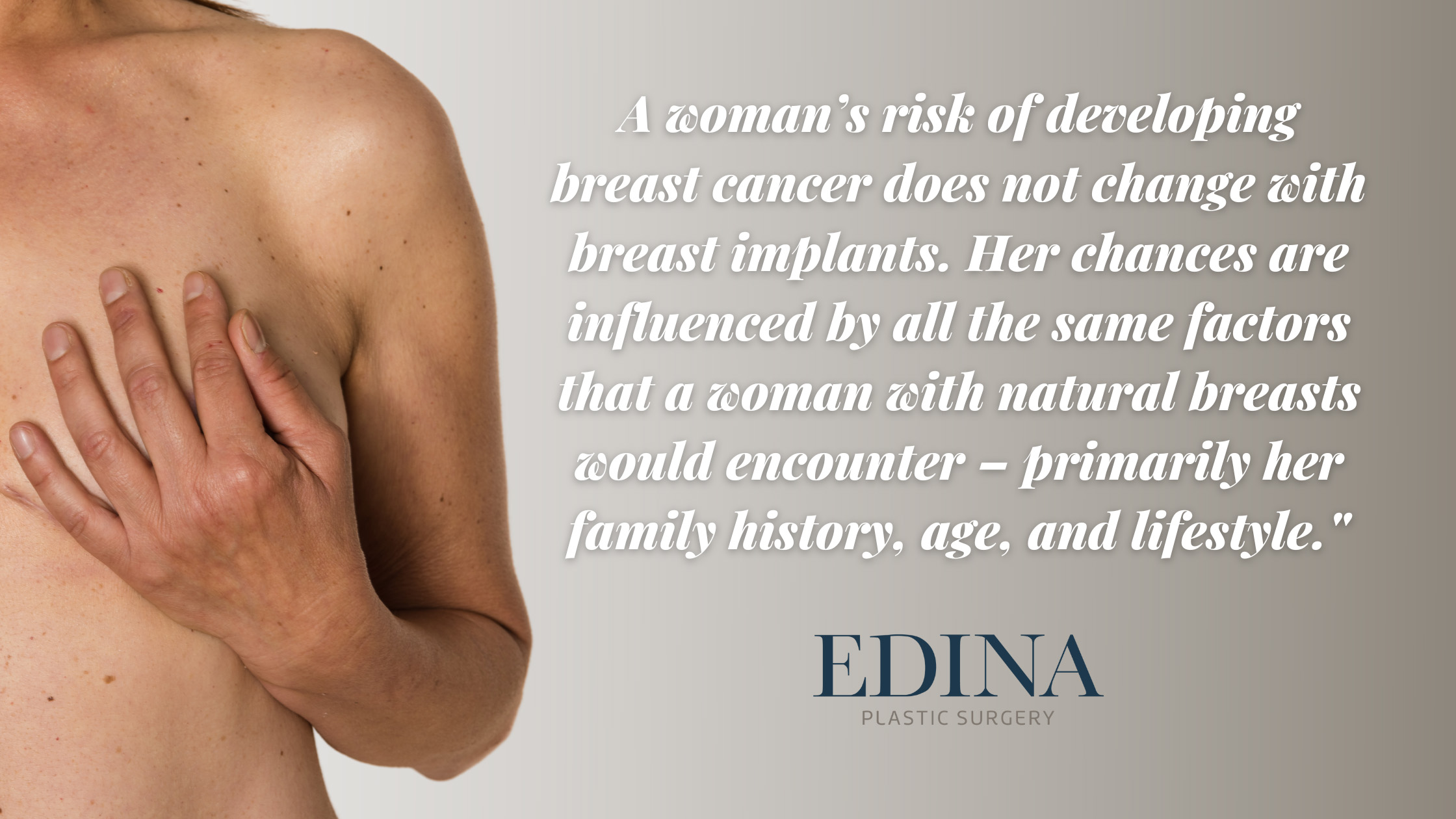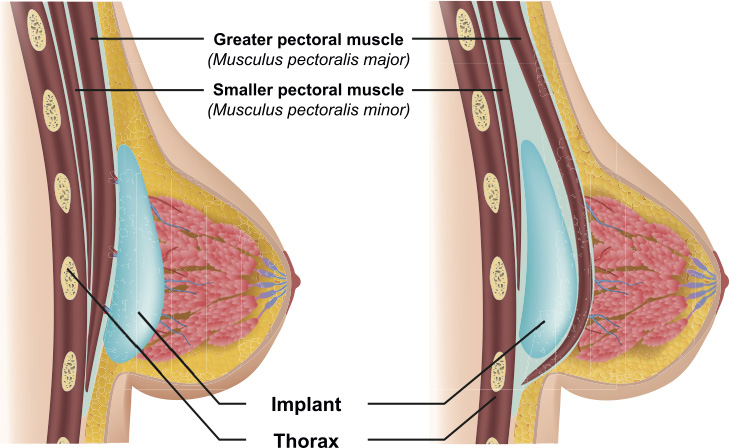In 2021, over 362,000 women enhanced the size and shape of their breasts with Breast Augmentation surgery (Aesthetic Plastic Surgery National Databank). Of those women, 162,700 were between the ages of 17 and 35. These statistics suggest that many women who decide to get breast implants do so well before the age that their first mammogram is recommended. In fact, the topic of future mammograms may never even have been discussed with their plastic surgeon. If you are a woman considering breast augmentation surgery or one who currently has breast implants and is nearing or in your 40s, you may have questions about getting your first mammogram with breast implants.

“First and foremost, having a mammogram with breast implants is both safe and effective,” stresses Dr. Christine Stewart, a board-certified plastic surgeon, and partner with Edina Plastic Surgery. “I make it a point to discuss this topic during my breast augmentation consultations, even with women in their early 20s, because breast cancer screening and early detection are crucial for women’s health. That being said, there are some differences to consider when receiving a mammogram with implants versus 100% natural breast tissue. There are also some common myths I’d like to dispel and frequently asked questions that warrant attention.”
#1 – Is a woman at a higher risk for developing breast cancer if she has breast implants?
“The short answer here is no,” says Dr. Stewart. “A woman’s risk of developing breast cancer does not change with breast implants. Her chances are influenced by all the same factors that a woman with natural breasts would encounter – primarily her family history, age, and lifestyle. Extensive studies throughout the years have shown no correlation between breast cancer and breast implants – neither saline nor silicone. The two reported links by the FDA are between a specific type of textured implant and the risk of a type of cancer called Anaplastic Large Cell Lymphoma, which is extremely rare. Squamous cell carcinoma has been recently reported as a cancer that is associated with both textured and smooth implants, but is even more rare than ALCL.”

#2 – Do I need to get mammograms more often with breast implants?
Mammogram frequency and guidelines are the same if you have natural breasts or breast implants. The American Cancer Society recommends that women ages 40 to 44 should have the choice to start annual breast cancer screening with mammograms if they wish to do so unless they have a strong family history of breast cancer. In this case, mammograms may be recommended at an earlier age. Women aged 45 to 54 should get mammograms every year. Women 55 and older should switch to mammograms every two years or can continue yearly screening.
Every woman is different. It is essential to consult your doctor to see what timeframe they recommend for mammograms based on your family and medical history.
#3 – Will breast implants obscure or compromise my mammogram results?
“The technology used in mammograms has difficulty going through silicone or saline implants well enough for a radiologist to detect signs of breast cancer in the underlying breast tissue,” explains Dr. Stewart. “This means breast tissue covered by your implant may not be seen fully on a mammogram. But, this only applies to implants placed in front of the pectoralis muscle, not behind it, as most plastic surgeons prefer.”

A breast implant can be placed in front of or behind the pectoralis muscle during breast augmentation surgery. If the implant is behind the muscle, it will not obstruct imaging of breast tissue in a mammogram. If the implant is in front of the muscle, a mammogram may be a bit more complicated because a mammography technologist may have to move or shift the implant to get a better view of all your breast tissue.
“I advise my breast augmentation patients to seek out breast imaging practices that are very experienced at performing mammograms on women with implants,” says Dr. Stewart. “Not only will this ensure more thorough mammogram results, but also a more comfortable experience. Remember to mention that you have breast implants when you schedule your first mammogram.”
#4 – Can a mammogram damage my breast implants?
During a mammogram, breast tissue is compressed by a machine. This action may make patients with breast implants nervous that their implant may rupture or become damaged during their procedure.
“No, your breast implants will not pop or break during a mammogram,” affirms Dr. Stewart. “I know many women are concerned about this, but experienced mammography techs have techniques for moving an implant out of the way and exposing more breast tissue in every direction during your mammogram. In some cases, your physician may even recommend an additional or alternative imaging option, like ultrasound or MRI, if your implants cannot be moved enough to image all of your breast tissue. I do tell patients in cases where they have really old implants, a mammogram could rupture the implant or the mammogram could make a previously existing rupture (that was unknown to the patient) worse so that it is externally noticeable after the mammogram. The mammogram gets blamed, but really the implant was already ruptured.”
#5 – Is 3D imaging mammography a better option for women with breast implants?
During a 2D mammogram (also called conventional digital mammography), two pictures are typically taken of each breast—one from the side and one from above.
During a 3D mammogram (also known as digital breast tomosynthesis), multiple images are taken of the breast from different angles. A computer combines the images to create a 3D picture of the breast, which may give doctors a clearer, more comprehensive view of the breast tissue.
“3D mammograms are generally recommended for women with denser breast tissue because they allow a radiologist more views to compare,” explains Dr. Stewart. “A breast implant is like dense breast tissue in a way, so a 3D mammogram may be a more comprehensive option for women with breast implants. It’s important to discuss all options with your doctor to determine the best method for you.”
Do you have further questions about having a mammogram with breast implants? Please email info@edinaplasticsurgery.com. Dr. Stewart, or another of board-certified plastic surgeons is happy to answer your questions and discuss any concerns you may have!


